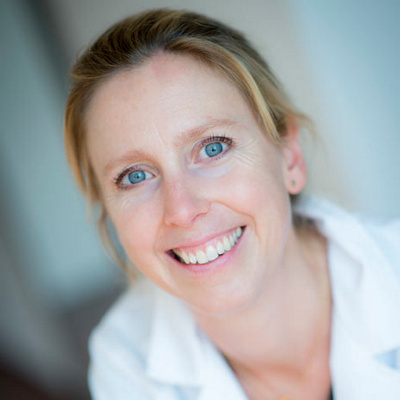Dr. Héloïse Emond is an FMH neurologist with extensive training in psycho-geriatrics and neuro-rehabilitation. Based in Geneva since June 2012, she practices in her practice of neurology, neuropsychology and neurorehabilitation and at Hirslanden Clinique La Colline. On the occasion of Brain Week, discover his portrait through our interview "3 questions to".
Why did you choose to be a doctor and specialize in neurology?
As a child I was fascinated by medicine, especially by the eye surgeon who operated on me when I was a child. She was a very elegant, competent, and approachable woman, a new idea of medicine. I was also attracted by these studies, which were considered difficult, and which turned out to be exciting, with an excellent university atmosphere.
I discovered an ever-renewed attraction to general neurology and behavioral neurology. It is a specialty that gives pride of place to clinical reasoning, straddling internal medicine and psychiatry, which involves loving chronic care, but keeping a good dose of pragmatism for emergency situations. There is a side a little "old school" that suits me perfectly. At the same time, treatments for neurological diseases have evolved dramatically over the past 20 years.
How, concretely, does your work influence your everyday life?
Medicine is a humanistic profession, and I provide for the majority of my patients a more or less long-term follow-up that involves an exchange of life experiences, obviously enriching.
I voluntarily chose a multi-site organization: clinical and technical consultations (ENMG, EEG) in my neurology, neuropsychology and neurorehabilitation practice, advice for hospitalized patients and for the emergency department of Hirslanden clinique la Colline, consulting physician activity at HUG and neurological expertise in a center of expertise.
Since June 2020, we have also reactivated a neurology guard with neurologists colleagues based in the city to anticipate the developments of Hirslanden clinique des Grangettes.
This implies a good agenda and tolerance on the part of the family circle, but Geneva is a small city and everything is in a pocket handkerchief!
What is your biggest challenge in your profession?
In my opinion, avoid the routine of a practice. It is for this reason that by launching my independent activity in 2012 I chose to partner with neuropsychologists and speech therapists, and to fragment the week into several activities, even if it sometimes seems a little dishevelled on my bike. There is always a hospital team observation, an emergency doctor's question or an expert paragraph that encourages reflection, and will feed a continuing education. This gives a very positive character to this challenge.
Interview by Julie Jean
Dr. Héloïse Emond

